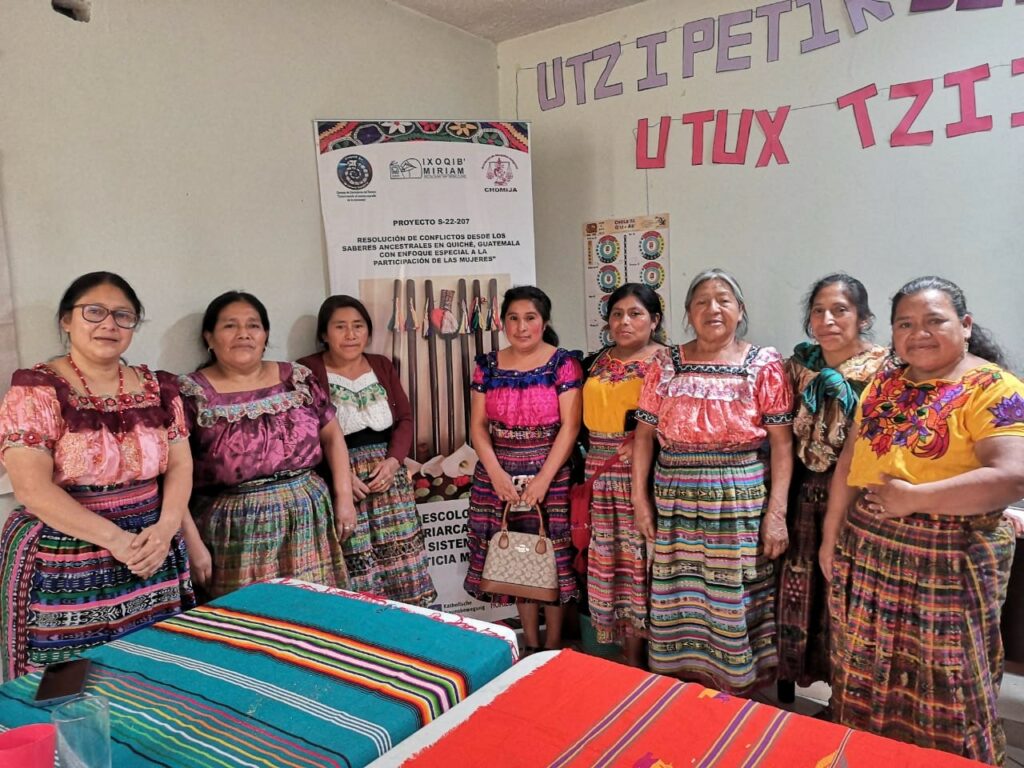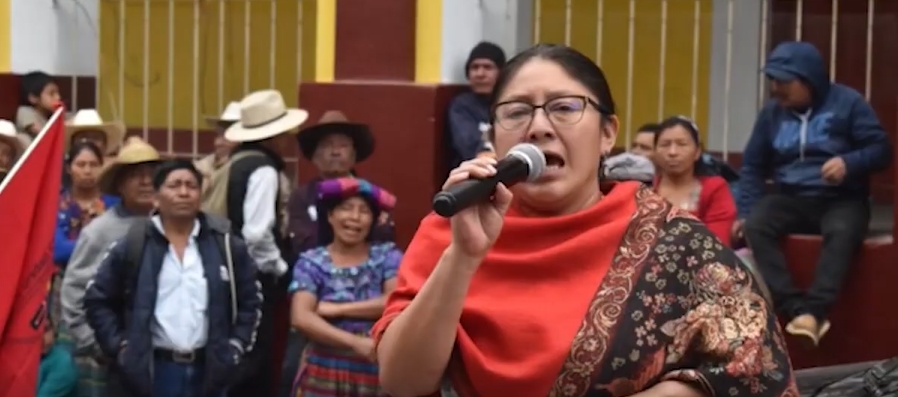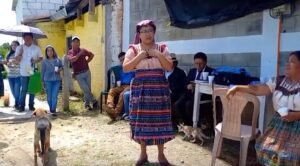Make Your Experiences Count. They Can Change the World.
LET’S BRING ALL OF OUR KNOWLEDGE AND EXPERIENCES TOGETHER.
TOGETHER WE KNOW MORE. TOGETHER WE ACHIEVE MORE. TOGETHER WE DO BETTER.
LET’S BRING ALL OF OUR KNOWLEDGE AND EXPERIENCES TOGETHER.
TOGETHER WE KNOW MORE. TOGETHER WE ACHIEVE MORE. TOGETHER WE DO BETTER.
Published: December 7, 2023
Written by: Edgar Chitop and Susanne Kummer
This article has been published in German in "Lateinamerika Anders" magazine
Women are at the forefront of demonstrations and mobilisations. However, the traditional Maya authorities, which are largely made up of men, usually do not recognise that women also play an important role in the administration of justice and socio-political organisation in the villages.
The work of indigenous women as traditional authorities is of great importance to the communities and strengthens their role as active political actors and guardians of law and justice. They are also active in the prevention of gender-based violence and support victims of violence. As can be seen in the pictures, they carry a staff as a sign of their authority in the community.
Initially, women’s participation in community organising was not considered normal by their male counterparts, says Rosa Petrona Hernández, an indigenous authority from Xatinab, Santa Cruz del Quiché. She continues: “Today our participation is seen as necessary, because in order to resolve conflicts, it must be discussed from the perspective of both men and women. Our opinion counts.”
Doña María Lucas de Zapeta has been working alongside her husband Don Mateo Zapeta for more than 20 years. Both are active traditional authorities who resolve many conflicts in the villages. She says they could spend months talking about their experiences with a variety of different types of conflict.
However, there are still people, especially in the cities and in non-indigenous areas, who question the legitimacy of the indigenous authorities. The argument is that there cannot be two legal systems in one country and that everyone in Guatemala should be subject to the state legal system without distinction. But the reality is different: the state justice system is not able to meet the needs of the Guatemalan population because it does not have sufficient human and financial resources, nor can it guarantee a territorial presence in all areas. High personal costs and long proceedings contribute to the fact that many citizens resolve their disputes by force (Internationale Juristenkommission (IGH) – Gerechtigkeit in Guatemala: Ein langer Weg. 2005, 71).

Mayan justice, on the other hand, functions democratically, free of charge and quickly. The traditional authorities who administer justice are elected at public assemblies for a term of office, usually one year. They fulfil their function on a voluntary basis, which means that there are no costs nor incentive to do it “for the money”.
Mayan justice is a community justice system: the local authorities work together with the offender and the harmed person and their families to discuss how the conflict can be resolved and the damage repaired.
Sebastiana Par, traditional authority and coordinator of a project by horizont3000 and Ixoqib’ MIRIAM (funded by BMEIA and kfb), which aims to strengthen the participation of women in the administration of justice and mediation as a method of conflict resolution, summarises the essence of Mayan justice:
“The identity of indigenous peoples is communal, as is responsibility. In restoring harmony in the community, it is crucial to see what has gone wrong in the relationships between the people who make it up. You listen to the person who has wronged and to those who have suffered the injustice. The role of the authorities is to listen, and they do this in an empathetic way. The most important thing about these resolutions is to restore balance and harmony in the relationships between the people involved in the conflict. If we put aside this idea of the rational individual that we have inherited from European modernity and consider the possibility of seeing ourselves in relationship, with each other and with our environments, we could help the people who have made mistakes and heal ourselves as a community.”

In the project led by Sebastiana Par, 12 traditional authorities were trained this year (9 of them women). 122 mediations were carried out in which an agreement was reached in 95% of cases. The initiative to increase the participation of women as traditional authorities has been extremely well received by both women and communities. The state university has also recognised the traditional authorities as legal advisors by allowing students to carry out their university internships with them.

The increased recognition of traditional authorities is also strongly noticeable in the current protests against the corrupt government, which refuse to recognise the electoral success of the newly elected President Bernardo Arévalo and Vice President Karin Herrera. The traditional authorities led the public resistance and showed that they have the potential to unite the various political actors.
It is to be hoped that the current extraordinary political situation will be a good framework for dialogue with the new government and the judicial institutions to assert indigenous people’s right to legal pluralism and their own socio-political organisation.